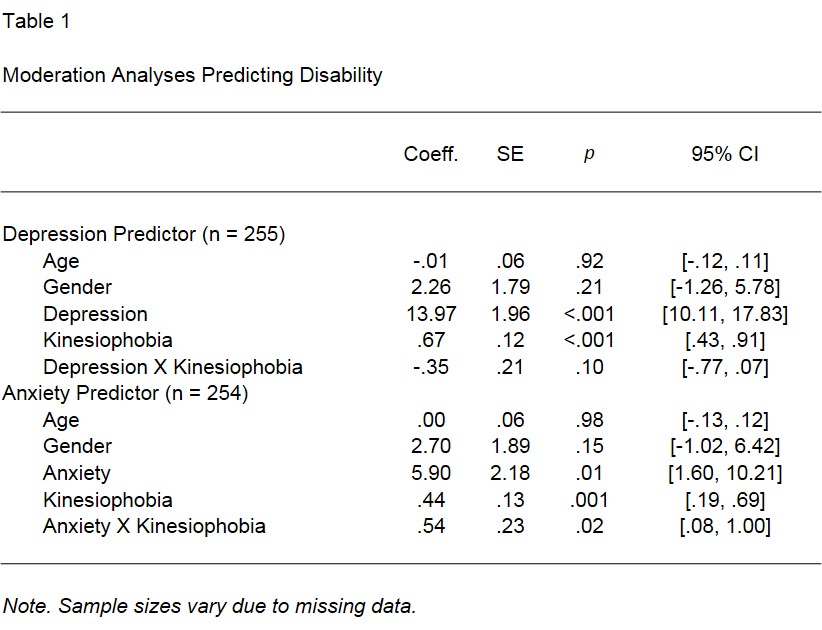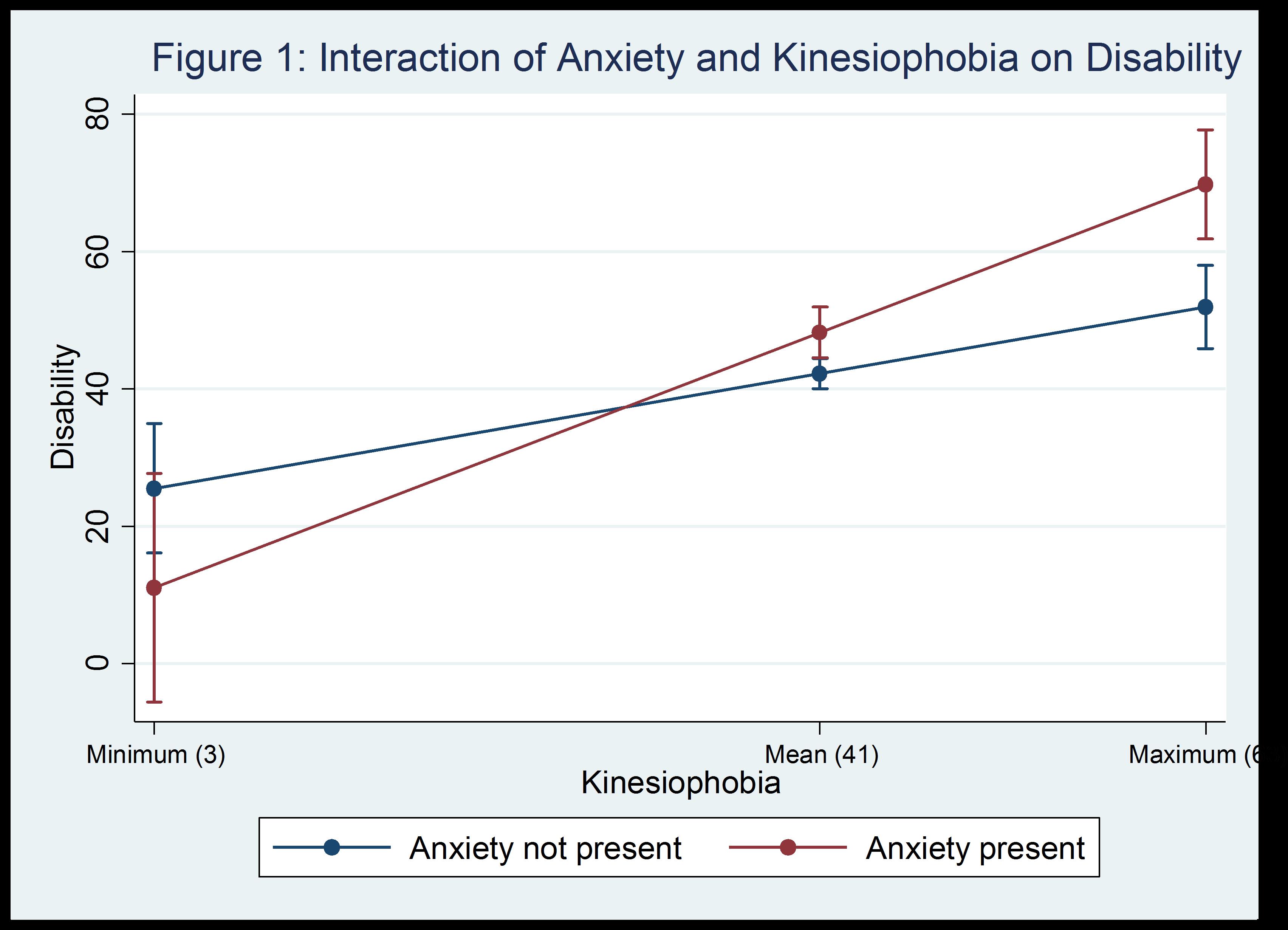Session Information
Session Type: ACR Poster Session A
Session Time: 9:00AM-11:00AM
Background/Purpose:
· Low back pain is a debilitating and costly condition with complex biological, psychological, and social factors contributing to the development of chronic low back pain (CLBP).
· Kinesiophobia is defined as an “excessive, irrational, and debilitating fear of physical movement and activity resulting from a feeling of vulnerability to painful injury or re-injury” (1).
· According to cognitive behavioral models of fear and avoidance, maladaptive thoughts may lead to avoiding activity, which in turn may lead to illness behavior and increased disability.
· Previous research suggests that depression, anxiety and kinesiophobia contribute to pain perception and physical function.
· Yet, little is known about how kinesiophobia and anxiety and depression may interact to predict disability.
· The objective of the present study was to explore the moderating effect of kinesiophobia on the relationship between depression and anxiety and disability in a sample of adults with chronic low back pain (CLBP).
Methods:
· The study included 283 new patients seeking treatment for chronic pain.
· New patients completed the Oswestry Disability Index, the Hospital Anxiety and Depression Scale, and the Tampa Scale of Kinesiophobia (TSK). High kinesiophobia was defined as a score greater than 37 on the TSK.
Results:
· High kinesiophobia was reported in 64% (N=181) of participants.
· Kinesiophobia, depression and anxiety were associated with greater disability.
· The moderated effect of depression was nonsignificant.
· Kinesiophobia modified the association between anxiety and disability (Table 1). Namely, anxiety contributed to greater disability at high levels, but not low levels, of kinesiophobia (Figure 1).
Conclusion:
· Kinesiophobia, anxiety, and depression were associated with greater disability. However, kinesiophobia moderated the relationship between anxiety and disability, such that having anxiety and high kinesiophobia was associated with a worse outcome.
· Kinesiophobia and anxiety are both modifiable psychological factors that can be addressed using cognitive restructuring and exposure based behavioral interventions.
References:
· Kori, S. H., et al. (1990). Kinisophobia: A new view of chronic pain behavior. Pain Management, 3, 35-43.
To cite this abstract in AMA style:
Goesling J, Moser S, Pierce J, Bolton C. Kinesiophobia Moderates the Association between Anxiety and Disability in Chronic Low Back Pain [abstract]. Arthritis Rheumatol. 2017; 69 (suppl 10). https://acrabstracts.org/abstract/kinesiophobia-moderates-the-association-between-anxiety-and-disability-in-chronic-low-back-pain/. Accessed .« Back to 2017 ACR/ARHP Annual Meeting
ACR Meeting Abstracts - https://acrabstracts.org/abstract/kinesiophobia-moderates-the-association-between-anxiety-and-disability-in-chronic-low-back-pain/


